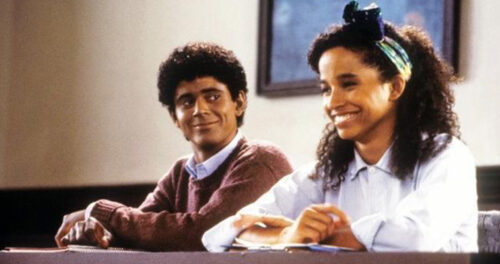[5]
C. Thomas Howell (The Hitcher) headlines this politically incorrect comedy about a teen who overdoses on tanning pills to appear black, so he can win a full scholarship to Harvard law school. While hiding his identity from a love interest (Rae Dawn Chong) and a professor (James Earl Jones) who comes to think highly of him, Howell’s character experiences racism first-hand and comes to realize how incredibly wrong his masquerade is.
Needless to say, Soul Man would never be made in today’s infinitely more socially sensitive environment. I find the film an interesting artifact of its time. Writer Carol Black and director Steve Miner ultimately condemn the film’s premise with a third act that focuses on the redemption of Howell’s character. While the film does indulge in racial stereotypes for humor (including the title itself), the film is certainly not mean-spirited, and even tries to highlight racism and inequality in its broader strokes.
When you strip out the politics, Soul Man is a fairly mediocre comedy of errors. Thomas is charismatic enough to carry the flick and James Earl Jones, of course, commands the screen in every scene he’s in. The romance subplot with Rae Dawn Chong is hard to swallow (no fault to Ms Chong for a commendable effort), particularly as the film wears on. It doesn’t help that the ‘falling in love’ montage is one of the most anemic in movie history or that the love theme, “Suddenly It’s Magic” by Vesta Williams, is excruciatingly barf-inducing.
If Soul Man were a more remarkable comedy in its own right, it might have stood a better chance passing the test of time. But it’s ultimately more controversial than entertaining, and thus relegated to the island of misfit movies.
With Leslie Nielsen, Ayre Gross, Melora Hardin, James Sikking, Max Wright (Alf), Julia Louis-Dreyfus (Seinfeld), and Ron Reagan (son of president Ronny).

